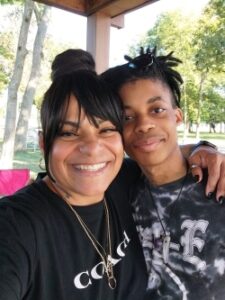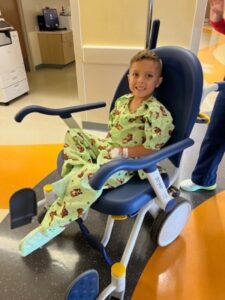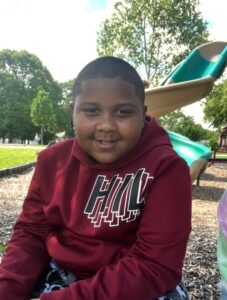Reece and Laynie Wright
Navigating care together for twins with type 1
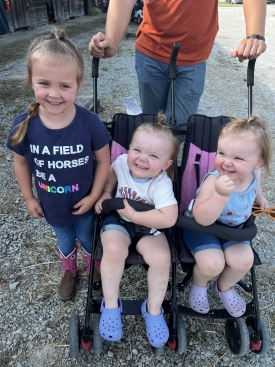
- patient name: Reece and Laynie Wright
- age: 3
- condition: type 1 diabetes
- seen in: endocrinology
- provider: Krishnamallika Mutyala, MD
Reece and Laynie surely live up to their title as twins. They have spent their young lives by each other’s sides, even facing type 1 diabetes together. While their parents, Autumn and Tristan, were initially worried about how their lives would change following the twins’ diagnoses, Dayton Children’s Hospital staff helped them navigate their new normal.
Reece’s journey with Dayton Children’s begins
In February 2022, 7-month-old Reece was taken to the emergency department at Dayton Children’s after her parents noticed she wasn’t acting like her typical, happy self. She seemed dehydrated, and her tongue felt dry. Autumn and Tristan shared these symptoms with Reece’s care team, and they began performing bloodwork. Typically, a child’s blood sugar ranges from 70 to 140 mg/dL, but Reece’s was 927 mg/dL. She was experiencing diabetic ketoacidosis, a life-threatening condition that happens when the body uses fat for energy instead of glucose (sugar). Reece was diagnosed with type 1 diabetes, and admitted to the hospital. There, Reece’s care team, led by Dr. Krishnamallika Mutyala, treated her symptoms and started teaching the Wrights how to care for type 1. Treating type 1 can be complicated and takes time to learn and get comfortable with. Dr. Mutyala was there for the Wrights from that first day, making sure they all felt in-the-know and grew in confidence as they started their type 1 journey.
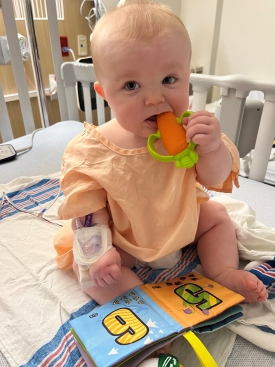
Laynie’s journey with Dayton Children’s begins
Ten months after Reece’s diagnosis, Laynie was frequently wetting through her diapers, and acting tired and fussy. Because of this unusual behavior, Laynie’s parents checked her blood sugar. When the test showed that Laynie’s blood sugar was significantly over a child’s typical range, Autumn and Tristan immediately took her to Dayton Children’s. When they arrived, Laynie was surrounded by familiar faces. She was diagnosed with type 1 by Dr. Mutyala and the same care team that diagnosed Reece. Laynie stayed at Dayton Children’s to be monitored and make sure her blood sugar leveled, but her endocrinology team sent her home the next day, confident in her parents’ ability to ensure both her and Reece remained in good health.
understanding type 1
Reece and Laynie’s parents credit Dr. Mutyala and the diabetes care team for giving their family outstanding care. After the twins’ diagnoses, Autumn and Tristan were able to learn about diabetes at the pace they needed, asking questions along the way. From social workers that go “above and beyond to find ways to help” to doctors that “trust wholeheartedly that we’ve got Reece and Laynie’s care handled,” the parents feel validated by the continued support offered by the hospital.
“Dr. Mutayla and the diabetes team made sure to regularly check in on us and replied in a timely manner. This made things easier and less stressful,” Autumn said.
twin-specific care
Once Autumn and Tristan were comfortable managing the twins’ care, Reece and Laynie were both prescribed a Dexcom G6 to manage their blood sugar and automatically dose insulin throughout the day. Having two similar, but specific care plans made it difficult for the parents to manage both twins’ conditions. As a result, they turned to technology.
Using two iPhones helps keep each twin’s health information separate and simplified, Autumn said. While Reece’s tech is decorated with a pink case, Laynie’s is decorated with a blue one. The devices’ settings and apps help the twins’ parents and other caretakers differentiate Reece and Laynie’s needs.
“Autumn and Tristan deserve recognition for how they handle Reece and Laynie’s care. Despite the challenges of caring for two type 1 kids, their attention to detail makes it seem like a breeze,” Dr. Mutyala said.
moving forward
“Reece and Laynie have handled their diagnoses with more grace than we could have ever imagined,” Autumn said. Both parents take pride in the entire family’s effort to take care of the twins. Two years after their diagnoses, Reece and Laynie are back to being active and doing the things they love.
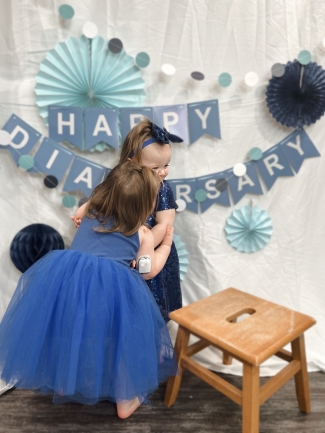
share your story
Every patient journey at Dayton Children’s is powerful — from NICU miracles to courageous cancer survivors and beyond. These patient stories not only celebrate our families but also offer hope and encouragement to others facing similar challenges. Share your experience today and help inspire, support, and celebrate the strength of our patients and families.
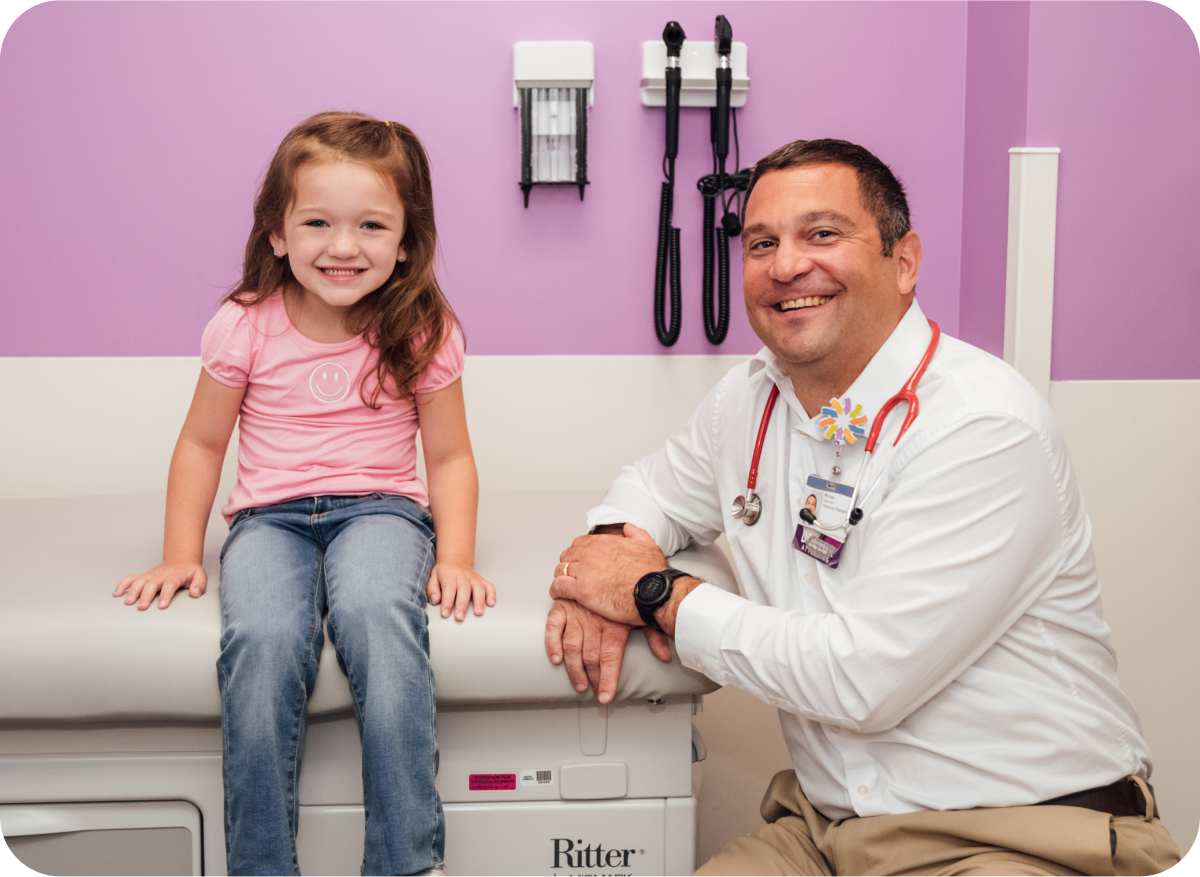
care that goes above and beyond
Because every child deserves care that goes above and beyond, Dayton Children’s provides compassionate, expert care for kids of all ages. Find a provider, schedule an appointment, or learn more about conditions we treat today.

